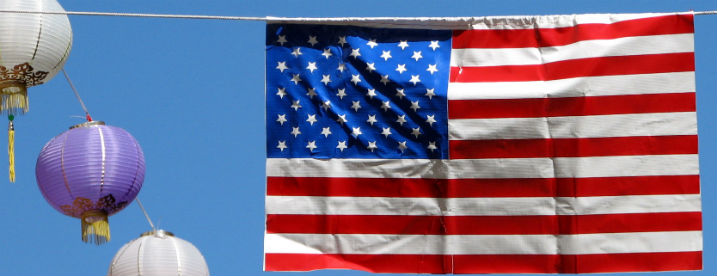
China’s Corrupt Economic Fugitives are Finding a Home in the U.S.
By Grace Zhao, August 22, 2014

U.S. Laws Enable the Outflow of Illicit Money from China, which Totaled US$1.08 Trillion from 2002 to 2011
Corrupt politicians, fugitive officials, and leaders on the lam have found a new safe haven to call home—the United States of America.
Interestingly enough, despite the sometimes contentious relationship between the two countries, the U.S. has now become the destination of choice for China’s “economic fugitives” running from corruption charges in their home country according to China Daily and the International Consortium of Investigative Journalists.
Many of these fugitives are known as “naked officials”, those who have moved their assets and family abroad to avoid regulations and scrutiny. Much of the time, these are high ranking leaders who have decided to move their wealth abroad should a corruption investigation arise.
Not every overseas action by these allegedly corrupt officials is illegal. After all, sending children abroad to study is hardly a criminal offense. However, in many cases, these innocuous actions mask money laundering and the theft of hundreds of billions of dollars from the Chinese economy.
In 2011, the Central Bank of China estimated that 800 billion yuan (around US$130 billion today) left the country between 1995 and 2008 due to theft by corrupt officials. According to our latest research, China lost around US$1.08 trillion in illicit financial outflows between 2002 and 2011. Much of these illicit financial flows were likely due to money laundering by wealthy and high-powered officials.
The United States is a convenient destination for corrupt Chinese officials, as the two countries do not currently have an extradition treaty. This means that it is very difficult for China to bring back any economic fugitives hiding in the U.S. Of course, accusations of human rights violations have also contributed to the lack of confidence in the Chinese judicial system, which only impedes extradition of corrupt individuals.
Yet, most importantly, U.S. laws and regulations actually enable and facilitate tax evasion, corruption, and money laundering. For example, a study conducted in 2012 revealed that the U.S. is the second easiest place (after Kenya) for a kleptocrat, criminal, or terrorist to form an anonymous company, the number one tool for laundering illicit wealth. In addition to aiding terrorists, drug traffickers, and arms smugglers, America’s lax incorporation laws make it extremely simple for corrupt Chinese expats to hide their assets in—and eventually flee to—the U.S.
In fact, New York City real estate has become one of the easiest ways for questionable individuals to funnel assets. Lax regulations and a “no questions asked” attitude has led to the purchase of more and more Manhattan real estate by secretive individuals that do not even reside in the upscale homes. While real-estate values in Manhattan soar—pricing scores of New Yorkers out of their homes—blocks of apartments remain empty, concealing only the dirty money hidden in the transactions.
China reports that today there are up to 150 corrupt Chinese fugitives residing in the U.S. This is a serious indicator of the ease at which financial crimes can take place within the United States. The only true way to stop these criminals from escaping to the U.S. is to curb illicit financial flows in the first place. Enhanced transparency measures—such as requiring the creation of public registries of corporate ownership information—would significantly curtail the ease with which criminals are able to move their funds overseas. Only then will we see a reduction in the numbers of economic fugitives.
Image: Flickr / Some Rights Reserved by Vlasta Juricek
